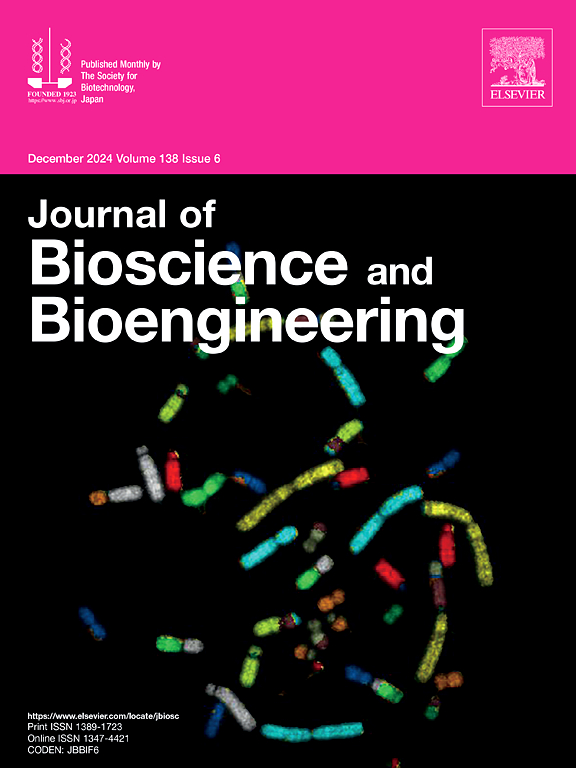Efficient degradation of corn straw at low temperature using a novel co-cultured consortium LHWA
IF 2.3
4区 生物学
Q3 BIOTECHNOLOGY & APPLIED MICROBIOLOGY
引用次数: 0
Abstract
Straw degradation was slow under low temperature environments. A cold-tolerant consortium LHWA was constructed by Bacillus cereus, Acinetobacter lwoffii, Penicillium griseofulvum, and Talaromyces funiculosus. The consortium and culture conditions were optimized. Under 4 °C cultivation, liquid fermentation showed a 55.52 % straw weight loss rate after 30 days with inoculum (8.4 %, w/v), peptone (0.4 %, w/v) and Fe2+ concentration (0.06 %, w/v); solid fermentation showed 58.36 % straw weight loss rate after 60 days. According to transcriptomic analysis, the mechanism of cold resistance in B. cereus is to improve the fluidity of the cell membrane, including changing the composition of fatty acids, increasing the expression of cold stress response proteins and cold shock proteins. The constructed consortium LHWA significantly improved the straw degradation efficiency under cold environments.

新型共培养组合LHWA在低温下高效降解玉米秸秆。
低温环境下秸秆降解缓慢。以蜡样芽孢杆菌、伊氏不动杆菌、灰灰青霉和索带Talaromyces构建了耐寒菌群LHWA。优化了财团和培养条件。在4℃培养条件下,接种量(8.4%,w/v)、蛋白胨(0.4%,w/v)和Fe2+浓度(0.06%,w/v)条件下,液体发酵30 d后秸秆失重率为55.52%;固体发酵60 d后秸秆失重率为58.36%。根据转录组学分析,蜡样芽孢杆菌抗寒的机制是改善细胞膜的流动性,包括改变脂肪酸的组成,增加冷应激反应蛋白和冷休克蛋白的表达。构建的LHWA联合体显著提高了秸秆在低温环境下的降解效率。
本文章由计算机程序翻译,如有差异,请以英文原文为准。
求助全文
约1分钟内获得全文
求助全文
来源期刊

Journal of bioscience and bioengineering
生物-生物工程与应用微生物
CiteScore
5.90
自引率
3.60%
发文量
144
审稿时长
51 days
期刊介绍:
The Journal of Bioscience and Bioengineering is a research journal publishing original full-length research papers, reviews, and Letters to the Editor. The Journal is devoted to the advancement and dissemination of knowledge concerning fermentation technology, biochemical engineering, food technology and microbiology.
 求助内容:
求助内容: 应助结果提醒方式:
应助结果提醒方式:


